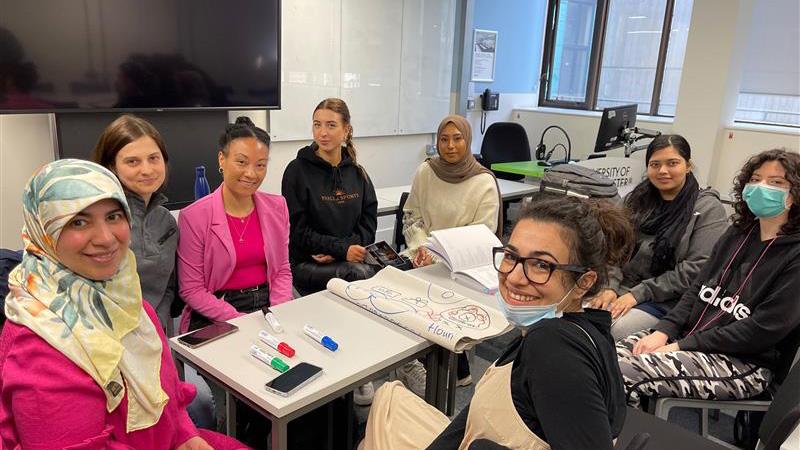The University of Westminster’s Mentoring Team have completed their group mentoring pilots, a new and innovative way of bringing mentoring into the classroom.

Future Ready Mentoring is a programme for students and recent graduates from the University of Westminster which gives them the chance to learn from industry professionals and enhance their employability through long or short-term career mentoring. The programmes allow students to gain valuable advice, a professional insight, grow in confidence and gain an understanding of what it might be like to work in a particular industry.
This year, the Mentoring Team have piloted group mentoring as an innovative way to expand their services and support more students at Westminster. After having witnessed the success of group mentoring within the Westminster Business School, the Mentoring Team decided to run two further pilots within the College of Design Creative and Digital Industries and the College of Liberal Arts and Sciences. In contrast to the other branches run by Future Ready Mentoring, group mentoring is subject specific, and it is integrated into students’ timetabled teaching.
This semester, group mentoring was piloted as part of three modules across the University, supporting final year students in the School of Computer Science and Engineering who were taking the module ‘Information Driven Entrepreneurship and Enterprise’, Psychology and Counselling BSc Honours students studying on the ‘Mindfulness in Psychotherapeutic Practice’ module, as well as MBA students studying on the ‘Entrepreneurial Mindset’ module. A total of three sessions took place across the 12 weeks of teaching, which took place in person for an hour per session. Each session was designed to supplement content that students would cover as part of their academic module, with a particular focus on applying knowledge in practical settings.
The themes around each session were decided beforehand and included topics such as ‘Understanding who you are’, ‘Overcoming challenges or barriers in our lives’ and ‘Building resilience and self-care’. These themes allowed students to understand their strengths and weaknesses and develop leadership skills as well as the ability to learn from constructive criticism.
Additionally, within the School of Computer Science and Engineering, group mentoring was closely aligned with the student’s assignments. As part of the module, students were put into groups of five to develop a plan for a viable online business concept. Mentors from an IT or business background proceeded to assist these students by supporting and further developing their business plans.
Talking about their experience, Richard Marsden, a mentor for students on the Information Driven Entrepreneurship and Enterprise module, said: “I’m very encouraged by what I’ve seen in these students; by their thought patterns and their willingness to ask questions. That is really encouraging. These are the people who are now coming into the job market. It does bode well for the future.”
Saheed Adeleke, a final year student on the Business Information Systems BSc Honours course, added: “The group mentoring scheme was a great idea and a success. The first and third weeks opened our minds to different business ideas and how an entrepreneur operates. In week five, the mentors were again helping to ensure we were taking the proper steps, and their last visit was the icing on the cake. Overall, the mentoring scheme was helpful, insightful, and educational. I would like to say a big thank you to the organisers and the mentors.”
Overall, the pilots have been incredibly successful with over 400 students participating in at least one group mentoring session and 50 mentors volunteering to support this new initiative. Future Ready Mentoring’s next steps are to expand this new branch even further, and the team hopes to support 1,200 students through group mentoring in the next academic year.
Find out more or get involved in the Future Ready Mentoring programme.


